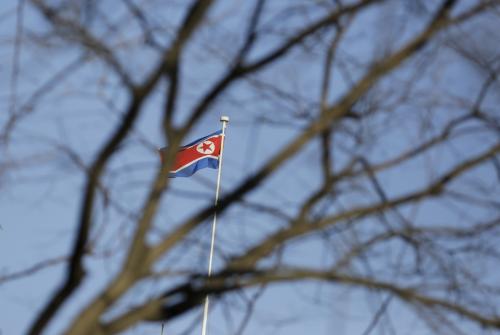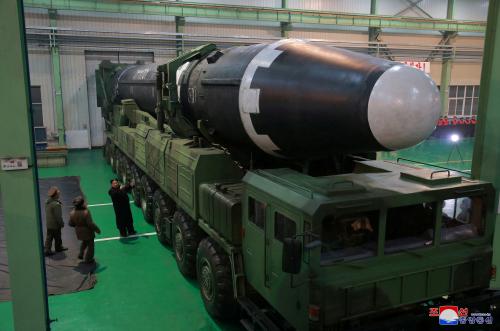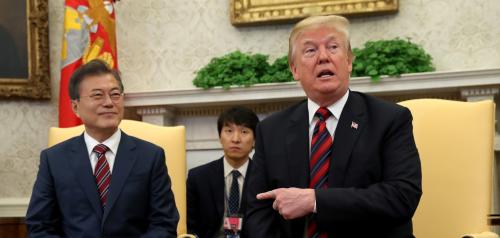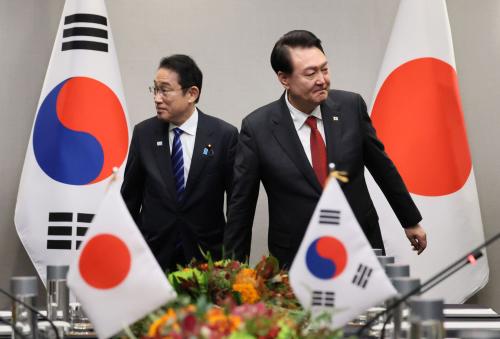In the June 5 Wall Street Journal, I advocate a long-term future for the U.S.-South Korea alliance, if and when the North Korean threat is largely defused or ended. My argument is based on several considerations:
- Strong alliances are better than international anarchy for the prevention of war, as a rule, historically;
- South Korea is perhaps among America’s five best allies in the world, with many capabilities of broader regional and global relevance that can contribute to U.S. security interests, as well; and
- South Korea (or a reunified Korea) will likely want some kind of hedge against Chinese power over the longer term, even if the North Korean threat is someday gone.
I then lay out two different concepts for what a future U.S. military presence on the peninsula might look like:
1A modestly slimmed-down version of today’s nearly 30,000 GIs would sustain the ability to help protect Korea against an overland threat, with the ability to reinforce with 10 times as many U.S. troops in the event of a Chinese threat, in particular.
2A more regional and expeditionary force structure could be stationed, smaller and oriented towards maritime and multilateral missions as much as the defense of Korea, per se.
We don’t need to figure all this out now, but we need to avoid making the wrong deal in Singapore that would preclude important options down the road. You can read the full op-ed here.







Commentary
If the North Korea threat recedes, should the U.S. maintain troops in South Korea?
June 5, 2018